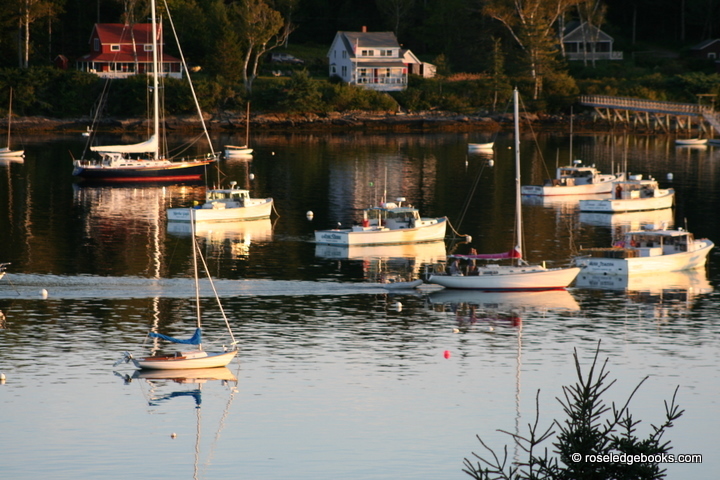Time for coffee thoughts, and if it is also cold where you are, RB suggests coffee in a mug that fits within your chilly hands. No snow here.
I love Linda Greenhouse and not just because she introduced me to Persons Day in Canada ( two posts back, 10/26/13), though that would be reason enough. Today’s reason is that she is exactly right when she asks of several types of judge about a case: “How do judges…learn what they need to know? And, of course, how do they — or any of us — choose what to make of the knowledge they have?”
This is let’s-talk-about-sources country, and immediately my librarian/spidey senses are on full alert because we of libraries know that sources make the argument and we of Irish love the argument.

Observation is a good source for those who know how to read the seeing. (Pretend "seeing" and "scene" are both one syllable.)
Legal sources are tidy. They are agreed upon, necessary, limited in number and ways they can be used, and, until the Internet bloomed, readily available. Non-legal sources are not as tidy, but they matter just as much in an argument. Think of the differences of opinion that will flourish at the Thanksgiving dinner table and of the different sources upon which they are based and weep for the intransigence and wrongness of others, even as you think twice about the sources in play and get ready for the Stage 2 argument that opens with “Why do you think so?” or, more crudely, “Name your sources.”. The most recent good book I’ve read that might help with this source attack is Farad Manjoo’s True Enough: Learning to Live in a Post Fact Society which — ARRGH — is not in paperback.
Sometimes the stakes of an argument about sources are bigger than never again being invited to dinner. A wonderful recent case in point is deciding whether a painting is or is not by Jackson Pollack. The decision hinges on which type of expertise and consequent evidence more validly tells the tale: connoisseurship (art) or forensics (science)? The outcome could be worth millions to his dead girlfriend’s heirs or enormous satisfaction to his dead wife. (A re-read of B. A. Shapiro’s mystery, The Art Forger might be a helpful update on painting techniques. Fun, too.)
A time ago, a similar, much-reported difference among experts happened when many were trying to decide if Yale’s Vinland map was authentic. One conclusion, if not the answer, was that Yale decided to insure the map for millions. The source debate is reported in The Vinland Map and the Tartar Relation, a lavish and expensive book which highlights some of the arguments. It’s worth a look — if only in a library. Very good news is that I have just discovered Kirsten Seaver’s Maps, Myths and Men: The Story of the Vinland Map (“a superlative piece of cross disciplinary detective work”) which, fortunately, is in paperback. I am going to have it for Roseledge Books and personal pleasure and hope it is as much fun as was Thomas Hoving’s King of the Confessors, his account of authenticating the 13thC. Bury St. Edmund cross. (I glossed over his dreams.) However obscurely,Ms. Seaver’s book might also help my perpetual quest for evidence that the Irish were “here” before the Vikings.
But I am getting carried away. It happens.
*****
LIBRARIES ARE IN THE NEWS; let me count the ways *****
San Francisco’s Glen Park Library hosted the (alleged) Dread Pirate Robert and his Silk Road, marketplace of the hugely profitable online illegal drug trade and other Dark Web activities. It’s always good to know that libraries are keeping up with the times. Remember the spies who lurked in the stacks of Columbia University and the fibbies wanted librarians to report anyone who looked or acted strangely? Well that’s you and me, folks, and a whole lot of other library users. The good news is that the librarians refused, maybe because they, too, are strange, well at least the interesting ones are.
Cambridge (Mass) PL, her home library, turned down Katherine Powers’ offer of a copy of her father, J. F. Powers’ newly published letters which she edited. (Suitable Accommodations: An Autobiographical story of Family Life, The Letters of J. F. Powers, 1947-1963) The CPL turned it down because the book was not on the NYT Bestseller List. I don’t know which is more appalling: not wanting to know more about National Book Award winner Powers (or not knowing he won the National Book Award?) or not adding to a community archive of writings by those who live there. Either way AARRGGGHHH!
*****
Time for more book-gift suggestions. I’ll hurry, but you all need to pitch in, too. Two comments are good (Santa knows about you, D and M), but more — with suggestions for hard-to-pleasers — are better.

